Related Research Articles
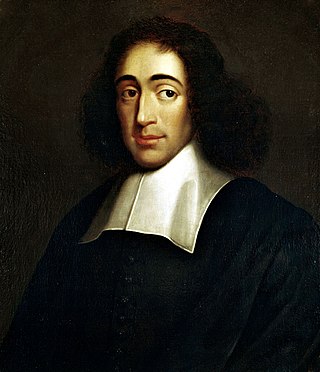
Baruch (de) Spinoza was a philosopher of Portuguese-Jewish origin, born in Amsterdam, the Dutch Republic, and mostly known under his Latinized pen name Benedictus de Spinoza. One of the foremost and seminal thinkers of the Enlightenment, modern biblical criticism, and 17th-century Rationalism, including modern conceptions of the self and the universe, he came to be considered "one of the most important philosophers—and certainly the most radical—of the early modern period". He was influenced by Stoicism, Maimonides, Machiavelli, Descartes, Hobbes, and a variety of heterodox Christian thinkers of his day. His controversial ideas challenged the divine origin of the Hebrew Bible, the nature of God, and the earthly power wielded by religious authorities, Jewish and Christian alike. He was frequently called an "atheist" by contemporaries, although nowhere in his work does Spinoza argue against the existence of God. His theological studies were inseparable from his thinking on politics; he is grouped with Hobbes, Locke, Leibniz, and Kant, who "helped establish the genre of political writing called secular theology."
In ontology, the theory of categories concerns itself with the categories of being: the highest genera or kinds of entities according to Amie Thomasson. To investigate the categories of being, or simply categories, is to determine the most fundamental and the broadest classes of entities. A distinction between such categories, in making the categories or applying them, is called an ontological distinction. Various systems of categories have been proposed, they often include categories for substances, properties, relations, states of affairs or events. A representative question within the theory of categories might articulate itself, for example, in a query like, "Are universals prior to particulars?"
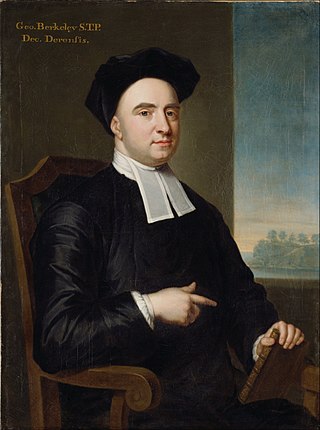
George Berkeley – known as Bishop Berkeley – was an Anglo-Irish philosopher whose primary achievement was the advancement of a theory he called "immaterialism". This theory denies the existence of material substance and instead contends that familiar objects like tables and chairs are ideas perceived by the mind and, as a result, cannot exist without being perceived. Berkeley is also known for his critique of abstraction, an important premise in his argument for immaterialism.

In metaphysics, ontology is the philosophical study of being. It investigates what types of entities exist, how they are grouped into categories, and how they are related to one another on the most fundamental level. Ontologists often try to determine what the categories or highest kinds are and how they form a system of categories that encompasses the classification of all entities. Commonly proposed categories include substances, properties, relations, states of affairs, and events. These categories are characterized by fundamental ontological concepts, including particularity and universality, abstractness and concreteness, or possibility and necessity. Of special interest is the concept of ontological dependence, which determines whether the entities of a category exist on the most fundamental level. Disagreements within ontology are often about whether entities belonging to a certain category exist and, if so, how they are related to other entities.
Substance theory, or substance–attribute theory, is an ontological theory positing that objects are constituted each by a substance and properties borne by the substance but distinct from it. In this role, a substance can be referred to as a substratum or a thing-in-itself. Substances are particulars that are ontologically independent: they are able to exist all by themselves. Another defining feature often attributed to substances is their ability to undergo changes. Changes involve something existing before, during and after the change. They can be described in terms of a persisting substance gaining or losing properties. Attributes or properties, on the other hand, are entities that can be exemplified by substances. Properties characterize their bearers; they express what their bearer is like.
In philosophy, rationalism is the epistemological view that "regards reason as the chief source and test of knowledge" or "any view appealing to reason as a source of knowledge or justification", often in contrast to other possible sources of knowledge such as faith, tradition, or sensory experience. More formally, rationalism is defined as a methodology or a theory "in which the criterion of truth is not sensory but intellectual and deductive".

Nicolas Malebranche was a French Oratorian Catholic priest and rationalist philosopher. In his works, he sought to synthesize the thought of St. Augustine and Descartes, in order to demonstrate the active role of God in every aspect of the world. Malebranche is best known for his doctrines of vision in God, occasionalism and ontologism.

Meditations on First Philosophy, in which the existence of God and the immortality of the soul are demonstrated is a philosophical treatise by René Descartes first published in Latin in 1641. The French translation was published in 1647 as Méditations Métaphysiques. The title may contain a misreading by the printer, mistaking animae immortalitas for animae immaterialitas, as suspected by A. Baillet.

The Critique of Pure Reason is a book by the German philosopher Immanuel Kant, in which the author seeks to determine the limits and scope of metaphysics. Also referred to as Kant's "First Critique", it was followed by his Critique of Practical Reason (1788) and Critique of Judgment (1790). In the preface to the first edition, Kant explains that by a "critique of pure reason" he means a critique "of the faculty of reason in general, in respect of all knowledge after which it may strive independently of all experience" and that he aims to reach a decision about "the possibility or impossibility of metaphysics". The term "critique" is understood to mean a systematic analysis in this context, rather than the colloquial sense of the term.

Mental substance, according to the idea held by dualists and idealists, is a non-physical substance of which minds are composed. This substance is often referred to as consciousness.

An Essay Concerning Human Understanding is a work by John Locke concerning the foundation of human knowledge and understanding. It first appeared in 1689 with the printed title An Essay Concerning Humane Understanding. He describes the mind at birth as a blank slate filled later through experience. The essay was one of the principal sources of empiricism in modern philosophy, and influenced many enlightenment philosophers, such as David Hume and George Berkeley.

A Treatise Concerning the Principles of Human Knowledge is a 1710 work, in English, by Irish Empiricist philosopher George Berkeley. This book largely seeks to refute the claims made by Berkeley's contemporary John Locke about the nature of human perception. Whilst, like all the Empiricist philosophers, both Locke and Berkeley agreed that we are having experiences, regardless of whether material objects exist, Berkeley sought to prove that the outside world is also composed solely of ideas. Berkeley did this by suggesting that "Ideas can only resemble Ideas" – the mental ideas that we possess can only resemble other ideas and thus the external world consists not of physical form, but rather of ideas. This world is given logic and regularity by some other force, which Berkeley concludes is God.
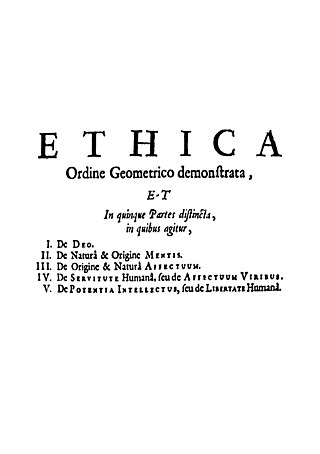
Ethics, Demonstrated in Geometrical Order, usually known as the Ethics, is a philosophical treatise written in Latin by Baruch Spinoza. It was written between 1661 and 1675 and was first published posthumously in 1677.
In the philosophy of mind, psychophysical parallelism is the theory that mental and bodily events are perfectly coordinated, without any causal interaction between them. As such, it affirms the correlation of mental and bodily events, but denies a direct cause and effect relation between mind and body. This coordination of mental and bodily events has been postulated to occur either in advance by means of God or at the time of the event or, finally, according to Baruch Spinoza's Ethics, mind and matter are two of infinite attributes of the only Substance-God, which go as one without interacting with each other. On this view, mental and bodily phenomena are independent yet inseparable, like two sides of a coin.
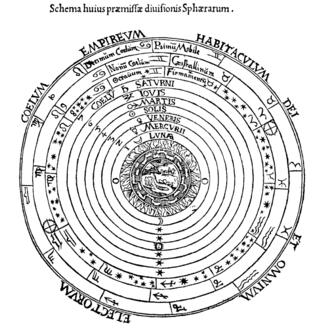
Nous, or Greek νοῦς, sometimes equated to intellect or intelligence, is a concept from classical philosophy for the faculty of the human mind necessary for understanding what is true or real.
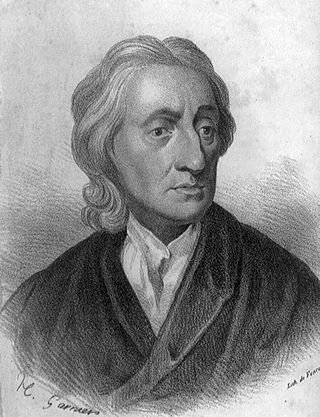
The primary–secondary quality distinction is a conceptual distinction in epistemology and metaphysics, concerning the nature of reality. It is most explicitly articulated by John Locke in his Essay concerning Human Understanding, but earlier thinkers such as Galileo and Descartes made similar distinctions.
Metaphysics is the branch of philosophy that investigates principles of reality transcending those of any particular science. Cosmology and ontology are traditional branches of metaphysics. It is concerned with explaining the fundamental nature of being and the world. Someone who studies metaphysics can be called either a "metaphysician" or a "metaphysicist".
The following outline is provided as an overview of and topical guide to metaphysics:
Personal identity is the unique numerical identity of a person over time. Discussions regarding personal identity typically aim to determine the necessary and sufficient conditions under which a person at one time and a person at another time can be said to be the same person, persisting through time.
Dutch philosophy is a broad branch of philosophy that discusses the contributions of Dutch philosophers to the discourse of Western philosophy and Renaissance philosophy. The philosophy, as its own entity, arose in the 16th and 17th centuries through the philosophical studies of Desiderius Erasmus and Baruch Spinoza. The adoption of the humanistic perspective by Erasmus, despite his Christian background, and rational but theocentric perspective expounded by Spinoza, supported each of these philosopher's works. In general, the philosophy revolved around acknowledging the reality of human self-determination and rational thought rather than focusing on traditional ideals of fatalism and virtue raised in Christianity. The roots of philosophical frameworks like the mind-body dualism and monism debate can also be traced to Dutch philosophy, which is attributed to 17th century philosopher René Descartes. Descartes was both a mathematician and philosopher during the Dutch Golden Age, despite being from the Kingdom of France. Modern Dutch philosophers like D.H. Th. Vollenhoven provided critical analyses on the dichotomy between dualism and monism.
References
- ↑ Diels-Kranz, The Fragments of the Pre-Socratics, Archytas, A 24.
- 1 2 3 Stein, Howard (2016). Newton's metaphysics: The Cambridge Companion to Newton. Cambridge University Press. p. 333. doi:10.1017/cco9781139058568.010.
as for instance is plain from this, that they would easily concede extension to be a substance like a body if only it could move and could exercise the actions of a body; and on the other hand, they would by no means concede a body to be a substance if it neither could move nor arouse any sensation or perception in any mind whatever.
- ↑ Locke, John (1816). An Essay Concerning Human Understanding, Volume 1. B. Smith. p. 131.
- ↑ Locke, John (1816). An Essay Concerning Human Understanding, Volume 1. B. Smith. pp. 131–132.